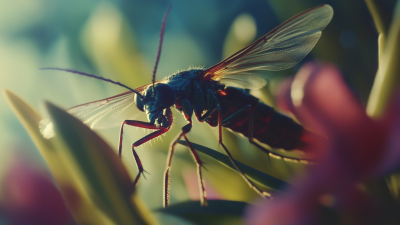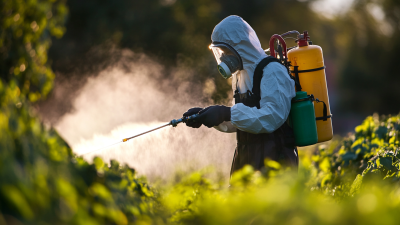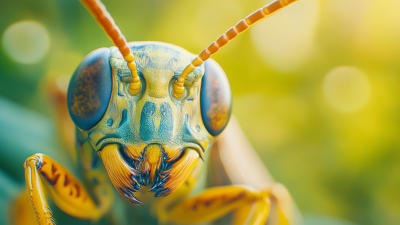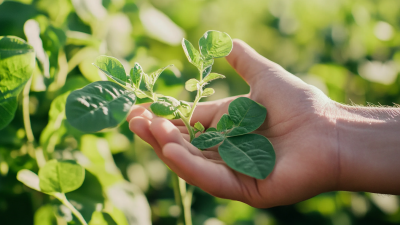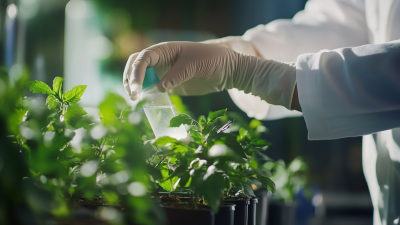 0551-68500918
0551-68500918 





You know, the agricultural sector is really changing fast,and the need for Effective Insecticides is becoming more urgent than ever. It's wild to think that global pesticide sales are expected to hit around$70 billion by 2025! As farmers and ag businesses look to up their game in Crop Protection, picking out top-notch manufacturers that really focus on research and development is a must. Take a company likeInnovation Meiland (Hefei) Co., LTD., for example. They're leading the charge in coming up with new pesticide products and smarter formulations, always keeping effectiveness and safety in mind. Based in Hefei, China, Meiland embodies that innovative vibe we need to tackle today's pest problems head-on, all while paving the way for sustainable practices and better crop yields. At the end of the day, knowing how to source these essential products from trustworthy manufacturers is key to succeeding in the competitive Crop Protection Market.
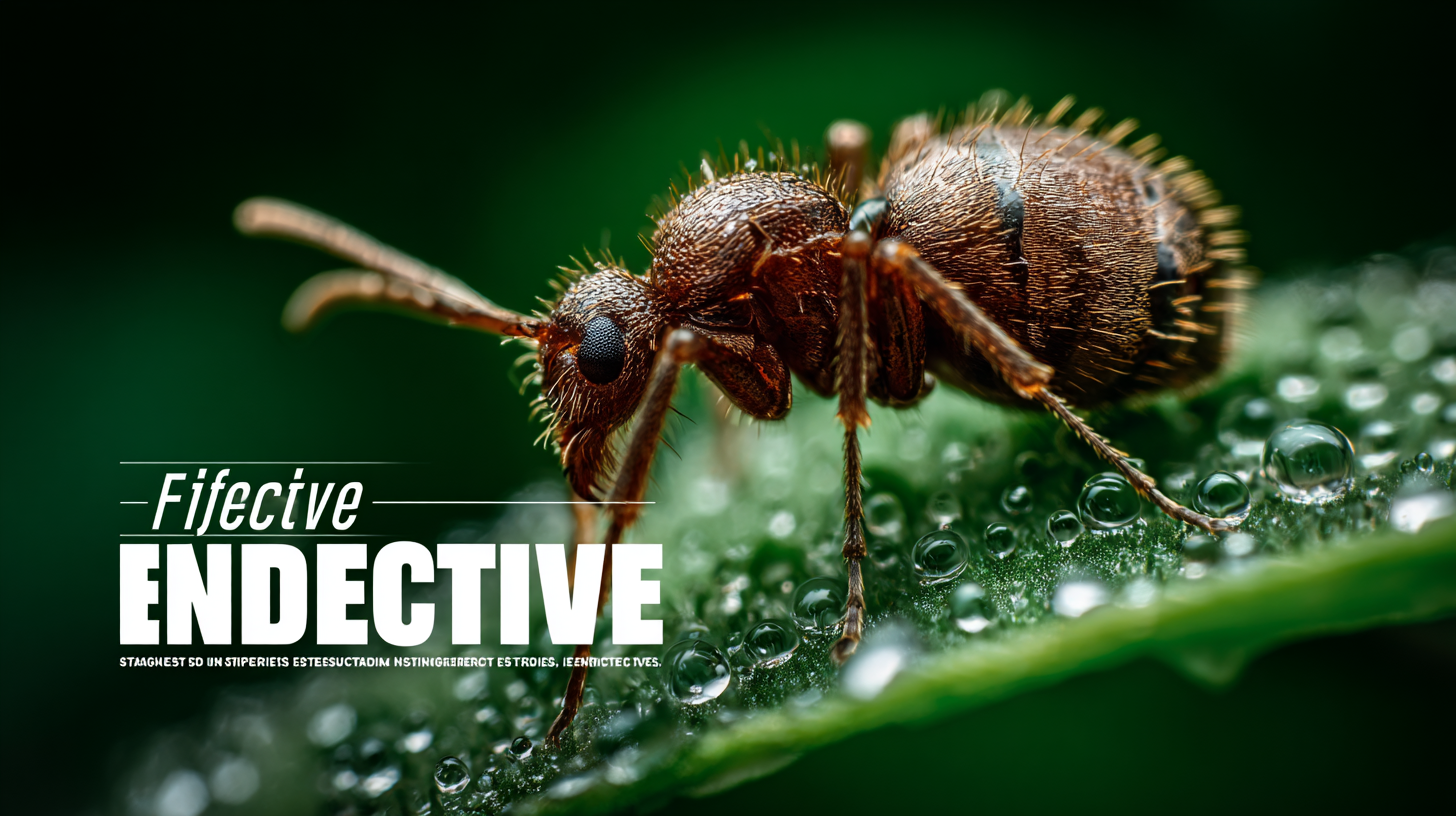
Choosing the right insecticides is super important in today's farming world. It really affects how much food we can grow and how we take care of our environment. You know, a report from the Global Industry Analysts says that the insecticide market is expected to hit around 19.6 billion dollars by 2027, mainly because we need to ensure there's enough food for everyone. But here’s the thing: pests are getting smart and are starting to resist the usual insecticides, so farmers have to figure out which products can effectively keep those pesky critters at bay while also being safe for the good bugs and the overall ecosystem.
When it comes to picking the right insecticide, it’s all about knowing the life cycle of those pests and what using chemicals can do to the environment. A study in the Journal of Agricultural and Food Chemistry pointed out that integrated pest management (IPM) strategies—which mix biological control with some careful use of insecticides—can actually cut down pesticide use by up to 50% while still keeping our crops healthy. As more farmers start to use these methods, it really underscores the need for finding high-quality, innovative insecticides. That’s why working with industry experts and research groups is so key; it helps them stay one step ahead of those pesky pests and the environmental issues we’re all concerned about.
You know, insecticides are kinda game-changers in a bunch of fields, especially when it comes to farming and keeping us healthy. Take this big cotton farm, for example. They cleverly used something called integrated pest management (or IPM for short) to tackle pests. By mixing biological methods with some well-placed insecticide use, they not only kept those pesky bugs in check but also managed to cut down on their chemical use by about 30%. The result? They ended up with healthier crops and less harm to the environment. It really shows how smart insecticide use can make a difference.
Then there's the public health angle. Picture this: a city in Southeast Asia tackling dengue fever. They rolled out a community program to get locals involved, working hand-in-hand with effective insecticide treatments. They took the time to teach folks how to use pesticides responsibly and got them to help get rid of places where mosquitoes breed. And guess what? They saw an incredible 60% drop in dengue cases within just a year! It really proves that with some creative thinking in how we source and apply insecticides, we can reap big health rewards and also bring the community together.
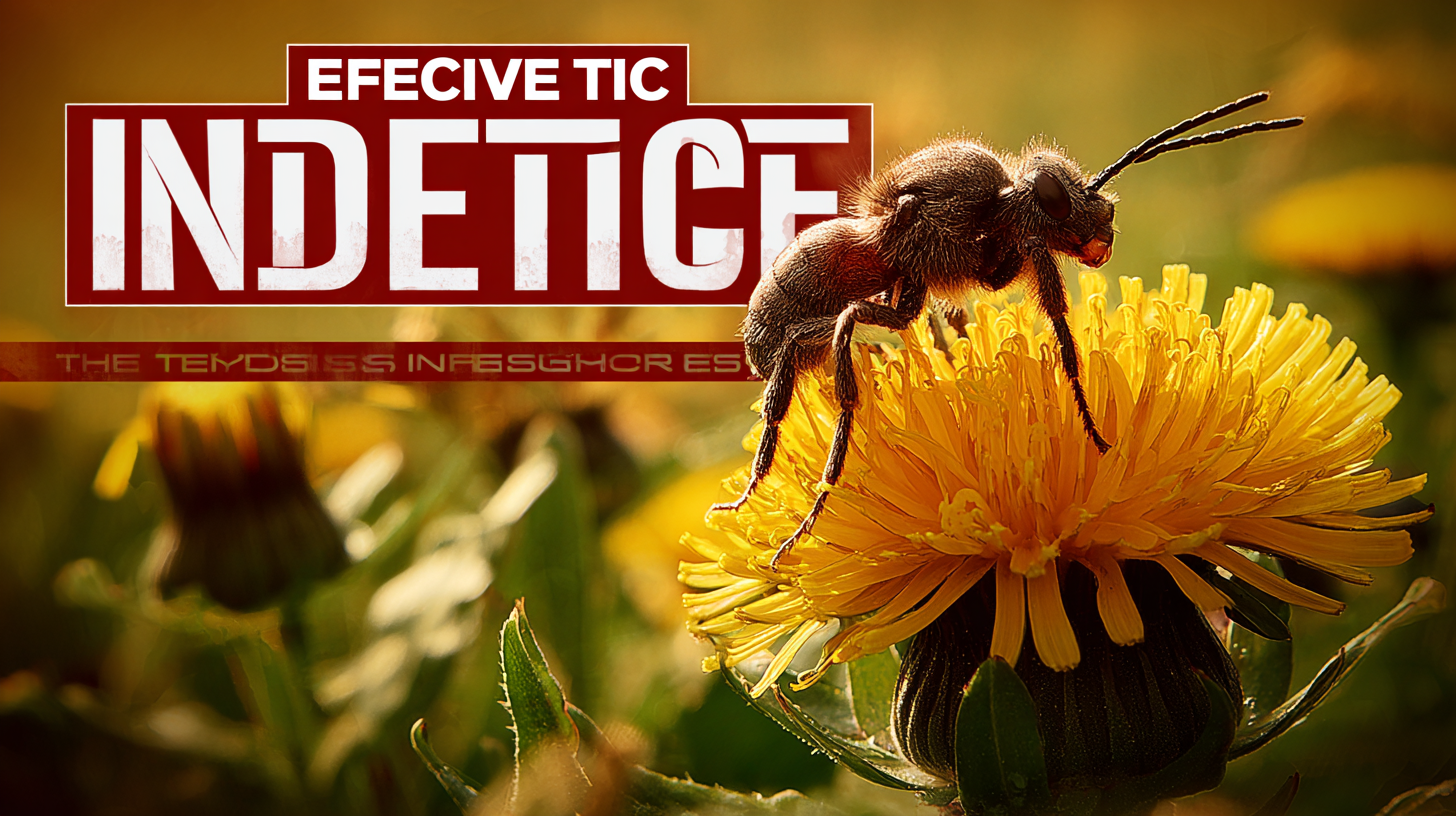
Finding the right insecticides can be a real headache for industry leaders, especially when it comes to effective pest management. One of the big hurdles is dealing with the regulatory landscape, which can be super confusing and varies a lot from one place to another—it’s like a moving target! A report from the Global Pest Management Coalition actually found that over 60% of pest control companies are worried about keeping up with local and international regulations when they're trying to source new products. So, they really have to get a solid grip on the laws regarding chemical use, packaging, and disposal to make sure they’re keeping things safe and efficient in their pest control efforts.
Then there's the growing push towards insecticides that are more environmentally friendly and sustainable. A recent survey from the Environmental Protection Agency pointed out that 78% of consumers are pretty concerned about how chemical usage affects the planet. This has got suppliers hustling to jump on this trend fast! It’s not just about changing sourcing strategies; it's also a major driver for innovation in product development. Nowadays, industry leaders are keen on teaming up with manufacturers who prioritize natural ingredients and sustainable practices. It’s a smart move to stay ahead in a market that’s all about eco-friendly solutions these days.

You know, the world of agriculture is always changing, and folks in the industry are really buzzing about how important it is to pick the right insecticides—especially ones that fit well with today’s farming practices. After attending events like the AgriBusiness Global Southeast Asia Conference, it’s clear that when it comes to effective insecticides, we should be looking at more than just how well they work. Sustainability is a big deal now too. With innovation leading the charge, experts are pushing for products that not only control pests effectively but also leave a smaller mark on the environment. As ag tech keeps progressing, finding the right insecticides isn’t just about their immediate impact; it’s also about making a pledge to keep our ecosystems healthy for the long haul.
On top of that, industry leaders are really leaning into data and research when it comes to making their buying choices. Take the ongoing studies from McGill University, for example; they’re shining a light on how we can use scientific insights to choose the best insecticides. This focus on data makes sure that the products we choose are not just great at fighting off pests but also align with the bigger picture of sustainability and productivity in farming. So, as we look ahead, it’s clear that mixing in some advanced agricultural technology will be super important for crafting the next wave of top-notch insecticides, ultimately helping to build a stronger agricultural future.
| Criteria | Importance Level (1-5) | Description |
|---|---|---|
| Efficacy | 5 | The insecticide's ability to effectively control pest populations in targeted conditions. |
| Safety to Non-Target Organisms | 4 | Assessment of risk to beneficial insects, wildlife, and human health. |
| Environmental Impact | 4 | Evaluation of the insecticide's effects on soil, water, and ecosystems. |
| Regulatory Compliance | 5 | Adherence to local and international regulations governing pesticide use. |
| Cost-Effectiveness | 3 | Analysis of the cost relative to the benefits provided by the insecticide. |
| Formulation and Application | 4 | Ease of application, formulation stability, and compatibility with other products. |
| User Testimonials and Case Studies | 4 | Feedback from users regarding performance in real-world scenarios. |
You know, as more and more people are looking for effective ways to deal with pests, the future of insecticides is really starting to shift towards more sustainable methods. Folks in the industry are stressing just how vital it is to mix eco-friendly stuff and biopesticides into the usual insecticide recipes we’ve been using. This change isn’t just about keeping the planet happy, but it also taps into what a lot of health-conscious consumers are after these days. Plus, it seems like the trend is heading towards creating insecticides that can tackle pesky bugs without harming the good critters we want to keep around.
**Pro tip: Think about using natural insecticides that come from plants and microorganisms. These alternatives can really help manage those annoying pests while keeping the ecosystem pretty much intact.**
Another super important thing when it comes to future insecticide development is bringing in advanced tech, like precision agriculture and genetic engineering. These cool innovations let us apply pesticides more precisely, which not only cuts down on waste but also makes them more effective overall. By using data analytics and machine learning, producers can get a better handle on predicting pest outbreaks, which means they can step in faster and more effectively when trouble hits.
**Pro tip: It might be worth investing in research to explore smart insecticides that can adjust how they work based on the environment and how resistant pests get.**
So, when we’re talking about finding the right insecticides, it’s super important to really look at how well they perform. You know, people in the industry keep saying that we should use solid metrics to really get a grip on how effective these insecticides are. Stuff like kill rate, how long they stick around, and the range of pests they can tackle are key points to consider. Keeping tabs on these metrics lets buyers compare different products and figure out which ones will work best for their unique situation.
Here’s a tip: try running some field trials. Getting out there and seeing how these insecticides actually perform in the real world can give you some awesome insights. It’s fascinating to watch how they behave with different pests and in varying conditions. Plus, gathering data from these trials means your choices are backed by real evidence, not just shiny marketing claims.
Another big thing to think about is the safety aspect. You really want to consider how an insecticide affects non-target species and the environment overall, since those factors can impact how effective and sustainable a product is in the long run. So, please do your homework on potential risks associated with each insecticide.
Oh, and here’s another tip: don’t shy away from chatting with experts! Tapping into the knowledge of entomologists and agricultural specialists can give you a deeper understanding of how different products stack up in terms of effectiveness and safety. This way, you can be more confident that you’re picking the best options for managing pests.
: Effective insecticide selection is crucial as it impacts both crop yield and environmental sustainability, helping to ensure food security while minimizing negative effects on beneficial insects and ecosystems.
Farmers should understand the life cycle of pests and the environmental implications of chemical use, focusing on products that control pests effectively and have minimal harmful effects.
IPM is an approach that combines biological control with selective use of insecticides, which can reduce overall pesticide use by up to 50% while maintaining crop productivity.
Farmers can evaluate insecticide effectiveness using key performance indicators like kill rate, residual activity, and target pest spectrum, and by conducting field trials to observe real-world performance.
Field trials provide valuable insights into how insecticides perform under various environmental conditions and pest pressures, allowing farmers to make informed decisions.
Metrics related to non-target effects and environmental impact should be evaluated as they influence long-term efficacy and sustainability of the insecticide.
Farmers should engage with experts and leverage industry standards, collaborating with entomologists or agricultural specialists for insights on effectiveness and safety.
The global insecticide market is projected to reach USD 19.6 billion by 2027, driven by the increasing need for food security.
Farmers are facing challenges due to pests becoming more resistant to conventional insecticides, necessitating the selection of more effective and innovative products.
Collaboration with industry experts and research institutions helps farmers stay ahead of emerging pest resistance and environmental concerns, ensuring access to high-quality, effective insecticides.
